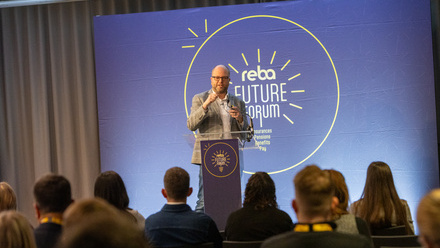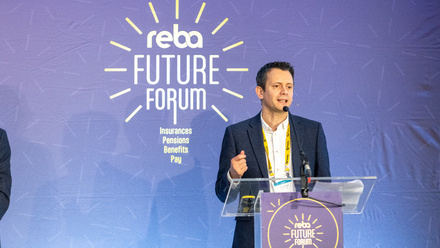rebaLINK: Sustainability-related reward and benefits
To find out more about the types of benefits available that would align with sustainability values, one of our Professional Members asked the following question on rebaLINK – REBA’s online member-only networking and due diligence platform:
Question: We have a big focus on sustainability and I would like to find a solution that links to reward. We are looking at pensions investments and tying in to bonus schemes, however, I'd like a solution that is also more day-to-day that can engage employees and become part of the culture.
In addition, I'm looking for suggestions for new benefits and rewards related to sustainability and maybe recognition linked to sustainability as well.

Our member was keen to investigate different benefits platforms that could offer peer-to-peer recognition points that could be spent on sustainability initiatives, such as tree planting or charitable donations. Discount schemes that supported ethical brands was another area of interest.
Those responding to the post suggested a couple of benefits platforms that may be able to help, and highlighted that many platforms offer flexibility on the types of awards and discounts that can be offered to staff.
Another idea tabled by a rebaLINK member was: “We are looking to implement a service award and link it to a tree planting charity.”
Other ideas that the questioner had already considered included:
- climate perks: providing extra annual leave for employees choosing to select a more sustainable mode of transport for holidays
- electric company car scheme
- renewable utilities: working with an energy supplier to offer a staff tariff which can be signed up to on a domestic basis.
Advice from rebaLINK members revealed that many other organisations are already using sustainable benefits: “I'd have a think about the usual day of an employee and their personal life, and what you think could be environmentally friendly alternatives. Travel – we pay for railcards for people who travel for business which helps us on costs but also they can use it for personal journeys. Cycle to work schemes and a lift sharing platform to car pool with colleagues – with added free parking for those that do lift share or an electric parking space. Speak to bus providers to offer season ticket loans, or offer loans for bus season tickets.
“We were once discussing with Ecotricity around gamifying energy consumption, they would monitor it for us and if someone beats a target then they get a prize. It's one I'd like to revisit but for now we just have a sign up deal with Ecotricity for employees. Day-to-day expenses, can you team up with environmentally friendly suppliers to offer a discount?”
Another member added: “We have paid volunteering days (an unlimited number of days but approval is required), a global day of giving and I am going to look at carbon offsetting schemes.”
It’s clear that there are lots of great ideas out there to offer employees the opportunity to take advantage of ‘green’ employee benefits and recognition schemes.
Another area where businesses and their employees can make a big difference is with pension investments. A couple of our members mentioned this as an important factor to include when looking at responsible benefits.
Increasingly, ethical pension funds are becoming more mainstream, allowing employers and employees to invest their contributions in companies that generate revenue through low-carbon activities, for example. Other instances of ‘ethical funds’ include those that invest in companies with positive records on human rights, fair labour practices and fair trade policies, as well as avoid investing in tobacco, arms and corrupt states.
Finally, why not ask your employees what they would like to see in their benefits package? We’ve heard of one organisation that ran a hackathon to incentivise people to come up with ideas to help the organisation save money. This resulted in an idea to develop an eco-friendly investment scheme – where employees invested in putting solar panels on the rooves of the organisation’s buildings – they then received money back as a result of savings in electricity and the extra power generated by the panels. A win-win for the company and employees.
We’d love to hear about other innovative responsible and sustainable benefits you have on offer at your organisation. Why not drop us a line to tell us more?
The author is Dawn Lewis, content editor at REBA.






